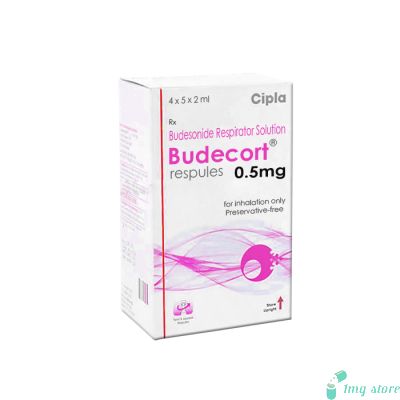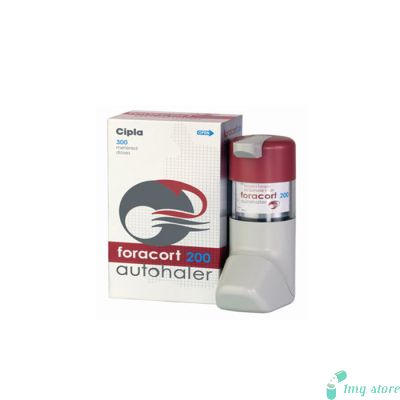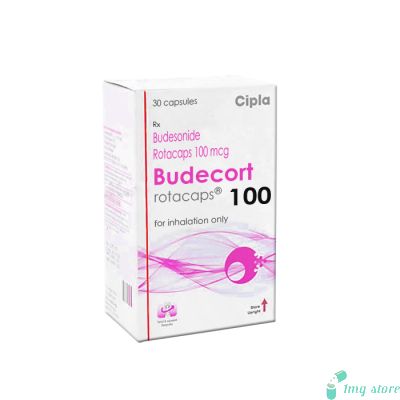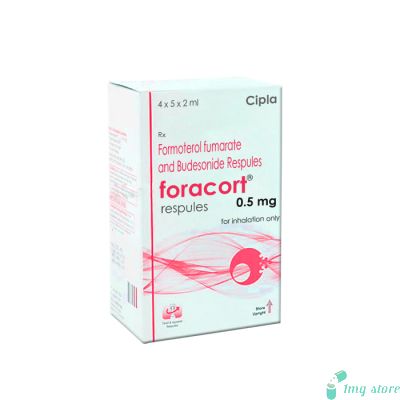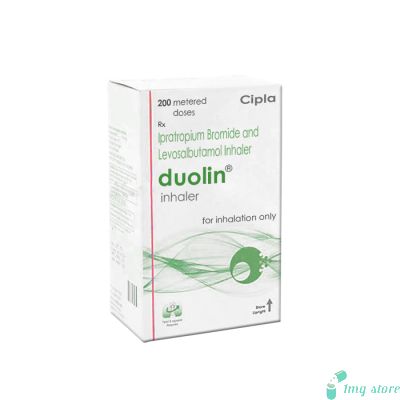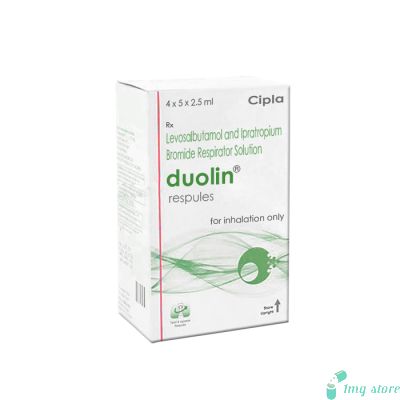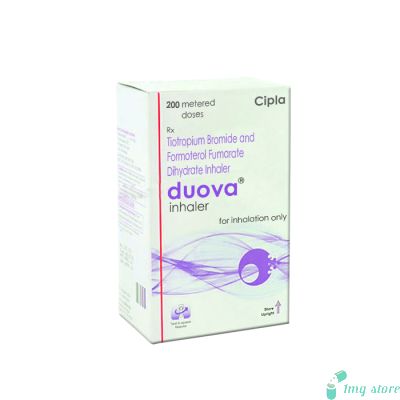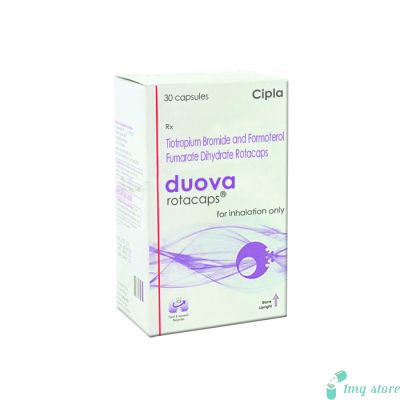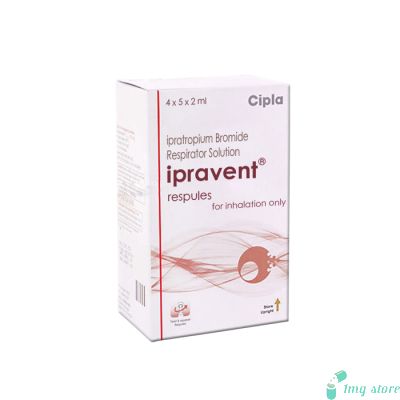Budecort Inhaler (Budesonide)
Budesonide inhaler, available under various brand names such as Budecort and Pulmicort, is a widely used medication in the management of respiratory conditions like asthma.
Introduction
Budesonide inhaler, available under various brand names such as Budecort and Pulmicort, is a widely used medication in the management of respiratory conditions like asthma. This comprehensive guide aims to provide detailed information about Budesonide inhalers, including dosage instructions, missed dose and overdose guidance, precautions, drug interactions, common uses, and potential side effects. Whether you are a healthcare professional seeking to enhance your knowledge or an individual prescribed Budesonide inhaler, this guide will serve as a valuable resource for understanding this medication's various aspects.
Dosage Information
Dosage instructions for Budesonide inhalers are essential to ensure the effectiveness of treatment while minimizing the risk of side effects. The recommended dosage may vary depending on the specific brand (e.g., Budecort, Pulmicort) and the individual's age, medical condition, and severity of symptoms. Generally, Budesonide inhalers are available in multiple strengths, including 100 mcg, 200 mcg, and 400 mcg per inhalation.
Dosage for Adults and Adolescents (12 years and older):
Mild to Moderate Asthma: The typical starting dose for adults and adolescents is 200 mcg (2 inhalations of 100 mcg each) in the morning and evening.
Severe Asthma: In cases of severe asthma, the initial dose may be increased to 400 mcg (4 inhalations of 100 mcg each) in the morning and evening.
Maintenance Therapy: After achieving control over asthma symptoms, the dosage may be reduced to the lowest effective dose, typically 100-200 mcg twice daily.
Dosage for Children (6 to 11 years):
Mild to Moderate Asthma: Children in this age group usually start with 100 mcg (1 inhalation) in the morning and evening.
Severe Asthma: If necessary, the dosage can be increased to 200 mcg (2 inhalations) twice daily.
Missed Dose:
If a dose of Budesonide inhaler is missed, it should be taken as soon as remembered. However, if it is close to the next scheduled dose, the missed dose should be skipped, and the regular dosing schedule should be resumed. Double dosing to make up for a missed dose is not recommended, as it may increase the risk of side effects.
Overdose:
Overdosing on Budesonide inhaler can be dangerous and may lead to serious side effects. If an overdose is suspected, immediate medical attention should be sought. Symptoms of overdose may include excessive dizziness, confusion, weakness, and potentially life-threatening complications. It is crucial to use this medication only as prescribed by a healthcare professional.
Taking precautions when using Budesonide inhalers is essential to ensure safe and effective treatment. Here are some important precautions to consider:
Allergies: Before using Budesonide inhaler, inform your healthcare provider about any allergies you may have, especially if you are allergic to corticosteroids or any other medications.
Medical History: Share your complete medical history with your healthcare provider, including any past or current respiratory conditions, infections, or liver problems.
Pregnancy and Breastfeeding: If you are pregnant, planning to become pregnant, or breastfeeding, discuss the use of Budesonide inhaler with your healthcare provider. They will weigh the potential benefits against any potential risks to the fetus or nursing infant.
Immunizations: Inform your healthcare provider if you or your child are scheduled to receive any vaccines while using Budesonide inhaler. Certain vaccines may be less effective during treatment with corticosteroids.
Regular Check-ups: Regularly follow up with your healthcare provider to monitor the effectiveness of Budesonide inhaler and assess any potential side effects. Adjustments to the dosage may be necessary based on your condition.
Budesonide inhalers have a broad range of applications in the management of respiratory conditions. Here are some common uses of Budesonide inhalers:
Asthma: Budesonide inhalers are frequently prescribed to control and prevent asthma symptoms in adults and children. They help reduce airway inflammation and improve breathing.
Chronic Obstructive Pulmonary Disease (COPD): Budesonide inhalers may be used as part of a treatment plan for COPD, particularly in cases where inflammation of the airways is a significant concern.
Allergic Rhinitis: In some cases, Budesonide nasal spray is used to treat allergic rhinitis (hay fever) by reducing nasal congestion and inflammation.
Inflammatory Bowel Disease (IBD): Budesonide may also be prescribed in oral form to manage symptoms of Crohn's disease and ulcerative colitis, both of which can affect the gastrointestinal tract.
Eosinophilic Esophagitis: Budesonide may be used as an off-label treatment for eosinophilic esophagitis, a chronic inflammatory condition of the esophagus.
These are just some of the many potential uses of Budesonide inhalers and related formulations. The specific application will depend on your diagnosis and the recommendations of your healthcare provider.
Like all medications, Budesonide inhalers may cause side effects. It's essential to be aware of these potential side effects while using this medication. Not everyone will experience these side effects, and their severity can vary. Common side effects of Budesonide inhalers may include:
Throat Irritation: Some individuals may experience throat irritation or a mild cough when using Budesonide inhalers. Gargling with water after each use can help alleviate this symptom.
Hoarseness: Budesonide inhalers can sometimes lead to hoarseness or voice changes. If this persists or becomes bothersome, consult your healthcare provider.
Oral Thrush: In rare cases, Budesonide inhalers can increase the risk of developing oral thrush (a fungal infection in the mouth). Practicing good oral hygiene and rinsing your mouth after each use can help prevent this.
Nasal Congestion: Budesonide nasal spray users may experience nasal congestion or a runny nose. This side effect is typically mild and temporary.
Headache: Headaches are a less common side effect but may occur in some individuals using Budesonide inhalers.
It's important to note that serious side effects are rare when using Budesonide inhalers as prescribed. However, if you experience severe symptoms, such as severe allergic reactions (e.g., rash, itching, swelling, severe dizziness, difficulty breathing), notify your healthcare provider immediately. They can provide guidance on managing side effects and may adjust your treatment plan if necessary.
Frequently Asked Questions (FAQs)
1. Can I use Budesonide inhaler for seasonal allergies?
Answer: Budesonide inhalers are primarily designed to manage respiratory conditions like asthma and COPD. For seasonal allergies, Budesonide nasal spray may be more appropriate. Consult your healthcare provider for guidance.
2. Is Budesonide inhaler habit-forming?
Answer: No, Budesonide inhalers are not habit-forming. They are corticosteroids used for medical purposes and do not create dependency or addiction.
3. Can I drink alcohol while using Budesonide inhaler?
Answer: Moderate alcohol consumption is generally safe with Budesonide inhalers. However, excessive alcohol intake may increase the risk of certain side effects. It's best to consult your healthcare provider for personalized advice.
4. Are there any dietary restrictions when using Budesonide inhalers?
Answer: There are no specific dietary restrictions associated with Budesonide inhalers. However, maintaining a healthy diet is essential for overall well-being and may complement your treatment.
5. Can I use Budesonide inhaler during pregnancy?
Answer: Discuss the use of Budesonide inhaler with your healthcare provider if you are pregnant or planning to become pregnant. They will evaluate the potential benefits versus risks and determine the best course of action.
6. How long does it take to see improvement in asthma symptoms with Budesonide inhaler?
Answer: The time it takes to see improvement varies from person to person. Some may experience relief within a few days, while others may take several weeks. Consistent use as prescribed by your healthcare provider is essential for optimal results.
7. Can children use Budesonide inhalers safely?
Answer: Yes, Budesonide inhalers are used in children for conditions like asthma. However, the dosage and treatment plan should be determined by a pediatrician to ensure safe and effective use. Regular monitoring is also important for children using Budesonide inhalers.
Understanding potential drug interactions with Budesonide inhaler is crucial to prevent adverse effects and ensure the medication's efficacy. Some medications may interact with Budesonide and either enhance or reduce its effectiveness. It's important to inform your healthcare provider about all the medications and supplements you are taking. Here are some notable drug interactions:
Oral Corticosteroids: Concurrent use of Budesonide inhaler with oral corticosteroids (e.g., prednisone) should be closely monitored by a healthcare provider, as it may increase the risk of side effects.
Ritonavir: Ritonavir, a medication used to treat HIV, may increase the concentration of Budesonide in the body. Dose adjustments may be necessary when these drugs are used together.
Antifungal Medications: Some antifungal medications, such as ketoconazole, may also increase Budesonide levels in the body. Your healthcare provider may need to adjust your Budesonide dosage when using these medications concurrently.
Certain Antibiotics: Erythromycin and clarithromycin, commonly used antibiotics, may interact with Budesonide inhaler. Inform your healthcare provider if you are prescribed these antibiotics, as dose adjustments may be required.
Live Vaccines: The use of live vaccines should be avoided while on Budesonide inhaler therapy, as it may weaken the immune response to the vaccine.
It's important to note that this is not an exhaustive list of drug interactions. Always consult your healthcare provider or pharmacist for a comprehensive review of potential interactions based on your specific medications.
| Manufacturer | : | Cipla Pharma, India |
| Equivalent Brand | : | Pulmicort Inhaler |
| Generic Search | : | Budesonide |







